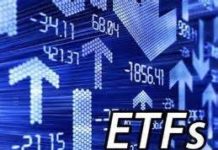Historically, new models of computing have tended to emerge every 10-15 years, we know quantum computing machines that are mainstream are about five years away, that is 2023. We also know third generation dApp platforms are coming into being rapidly that might be technically superior to the likes of Ethereum and NEO. This could be Cardano, it could also be someone like DFINITY.

If mainframes evolved in the 60s, PCs in the late 70s, the internet in the early 90s, blockchain in 2008, Ethereum in 2013?-?this definition of what a world-computer or an Internet Computer will rapidly likely mesh quantum computing with decentralized app platforms; and this is why DFINITY might become relevant.
The way we conceive of decentralization is changing the kind of software ecosystems we envision that can be value-chains of the future. In a sense blockchain communities are foundations of what the Cloud might look like. Reducing costs, disrupting monopolies and turning code into a better future.
What if algorithmic governance in the form of a Blockchain Nervous System that can protect users from attacks and help restart broken systems, could really manifest itself. What would that look like?
If decentralization is multidimensional spectrum, blockchain and distributed ledger technology has certainly the ability to impact every industry that is online, and that my friends, is the entire world today in 2018.
DFINITY is an upcoming competitor to Ethereums blockchain computer throne aiming to launch Q4 2018.
Could a liquid democracy and distributed intelligence somehow merge with advances in dApp platforms and utilize smart contracts, virtual ledgers and advanced public decentralized cloud computing resource to market? Competition is fierce, the pressure to scale is becoming intense, new projects are being born at an accelerated rate. First mover advantage due to the quickly converging cumulative knowledge in the field of dApps, smart contracts and blockchain means the biggest or most costly cryptocurrencies are not necessarily the best ones.
If such a flawed model as EOS can raise $4 Billion dollars, the crypto world is ready for a startup that is truly disruptive, that can change the playing field at a time when so many altcoins have gone extinct already. Blockchain computers were first proposed in 2008 by Satoshi Nakamoto in the Bitcoin whitepaper. Just 10 years later in 2018, DFINITY is my pick to be that disruptive next platform.
How do you future proof a space with so many scams, false promises and covert market manipulation? How do you reconcile the profiteering in crypto with the potential of blockchain in 2018? DFINITY has a vision of an Internet 3.0, in which the fabric of the Internet starts to act as a giant computer with radical new properties that could be extraordinarily disruptive.
They literally say that an alternative to monopolies should exist. An Enterprise IT systems running on this computer will be unstoppable and wont need to involve complex components such as databases, backup and restore systems. What if one startup could drive the future world-computer? If EOS sought to hijack decentralization as a PR catch-term, DFINITY is like an alternative to Ethereums vocabulary of being an enormously powerful shared global infrastructure that can move value around and represent the ownership of property.
R&D on the DFINITY project dates back to 2015. If Blockchain computers are new types of computers where the unique capability is trust between users, developers, and the platform itself; a myriad of platforms in their early stages are competing for investors, developers and all things that warrant trust and credibility from the world such as partnerships, implementation of cutting edge technology and solid community foundations.
According to one Software developer, Adam Tach., the engineering team is extremely experienced with distributed systems and cryptography, and is aiming to build a much more performant, scalable, and secure decentralized computer that eventually offers unlimited computational capacity.
So, What is DFINITY?
DFINITY is building a new kind of virtual computer driven by blockchain technology. Its building an open, decentralized blockchain that runs smart contract software systems with vastly improved performance, capacity, and algorithmic governance.
If trust is a new software prime directive from which other components can be constructed, developers today want to be working in open-source decentralized systems that are actively building the platforms of tomorrow. As such, many platforms can be seen as a community not just of investors, but of daily active developers.
DFINITY already raised $64.9 million for a platform that hopes to rival Ethereum. This from respected investors Andreesen Horowitz and Polychain Capital, so this project already has a head-start.
Being situated in Palo Alto, also gives this project easier access to funds. The DFINITY network is also capable of achieving transaction finality at an average speed of 7.5 seconds due to advancements in random number generation and selection. The Dfinity protocol uses Verifiable Random Functions (VRFs), BLS Cryptography and the Threshold Relay technique (powered by a random beacon) to achieve these speeds, according to their LinkedIn profile.
A World-Computer Where Smart Contracts are Mainstream
We dont really know how quantum computing, evolving artificial intelligence and programming languages will interact with next-gen blockchain platforms. But DFINITY is creating a technology aimed at developers who would like to create and run smart contracts on a blockchain network.
The Internet Computer. We need to update our business models with blockchain, and how blockchain is being adopted first in a more centralized way into existing corporations, one day means some of these altcoins will amount to new kinds of enterprise systems.
The startups of today can become the enterprise leaders of tomorrow. Blockchain and dApp platforms are just beginning to come into being at a time when China is increasingly taking on the historical power of innovation that is Silicon Valley.
If cryptocurrencies are in a bear market for now, dapp platforms that can pioneer new use cases for smart contracts are less so and are rising the ranks as being the key contenders to be the blockchain platforms with the most market value.
Blockchain Nervous System
Provide rapid upgrade process in comparison to traditional blockchains Adjust economic parameters if needed; modular and agile Automatically take actions to mitigate theft, fraud and bad actors without human intervention required A BNS thats guided by a human market process where constitution-directed neurons can create proposals and vote for changes.
Voting power is directly proportionate to deposits of dfiniities into the BNS
The BNS is able and will frequently analyze the moral authority behind proposals.
DFINITY, 2018
What I believe is as many ICOs fade, and many dApp platforms fail, some in spectacular fashion, others will remain (if few). DFINITY to me is such a project. As crypto is further regulated, the space could see another price singularity that echoes the bullish market like we saw briefly in December of 2017.
Silicon Valley Meets Crypto Valley in DFINITYs Rainbow
Recently DFINITY elected to skip an ICO for the time-being and instead go for a $35 million Airdrop instead (Swiss Francs), distributing its Cloud 3.0 tokens. As Fortune states, the airdrop amounts to a windfall for early backers of the Dfinity project, who will be able to hold on to the tokens or sell them on a secondary market. DFINITY also has a pre-sale with a goal of $90 million.
If Silicon Valley brought us Coinbase, DFINITY is its best shot at bringing us an Ethereum challenger. The vision is bolder, the branding is crisper and the team seems to be for lack of a better phrase, other than simply a group of kids. They seem to have academic rigour, and ties to both Crypto Valley and Silicon Valley.
Dominic has been pretty open to experimenting with alternative funding and team models that you dont often see in typical blockchain startups. As such DFINITY could have certain advantages when seeking partners in the enterprise space. DFINITY is definately also attractive for businesses seeking an enterprise solution that can lower (human capital based ) costs with benefits such as speed, security and scalability.
The foundation is a Swiss not-for-profit organization that pursues objectives defined in a special notarial deed?-?primarily, developing Internet Computer technology and promoting a successful network?-?and can sell batches of tokens in the genesis state to fund its operations.
However the ties to Silicon valley and traditional investing means DFINITY will also be under scrutiny for decentralization compliance. The majority (52.93%) of the tokens are owned by the DFINITY foundation, team, and for partnerships. 45.82% of tokens were sold to investors in a pre-sale. The remainder (1.25%) were distributed through a community airdrop. For a dApp platform out of the U.S. though, you wouldnt really expect anything different; like Coinbase, this will be an inside play on a trending tech vertical.
Where cryptocurrencies will go extinct, DFINITY can survive.
STILL…
The DFINITY blockchain is built on top of a decentralized randomness beacon acting as a Verifiable Random Function (VRF) that is a verifiable hearbeat of the system.
Miners and a p2p broadcast network composed of an unlimited amount of clients with permanent pseudonymous identities.
The broadcast network is organized into random groups, who can send messages to everyone else.
Ethereum code can run on DFINITY (World-computer Sisters I guess).
The consensus mechanism is Threshold Relay.
Block time is only a few seconds.
Shards act as the storage layer, receive transactions, record updates to their local state, and then pass them transactions to validation towers where contracts are executed (and transactions validated) in Solidity and high-level languages compiled to WASM.
So can Silicon Valley in partnership with Crypto Valley disrupt Ethereum and beat the Chinese and Chinese Government backed platforms such as NEO, Qtum and others?
Although the Bitcoin whitepaper is now almost 10 years old, its safe to imagine that one of the smart contract platforms founded before 2020 will end-up being the dominant model that helps guide dApps to increased mainstream utilization and implementation.
Blockchain marries the power of software, trust, community, consensus, smart contracts and decentralization to change the world on a fundamental level. As quantum computers become mainstream, dApp platforms will merge with new kinds of code that will break limits of the dualistic advertising and legacy internet we know today that has been corrupted. That internet of tomorrow will be a new kind of virtual world computer.



